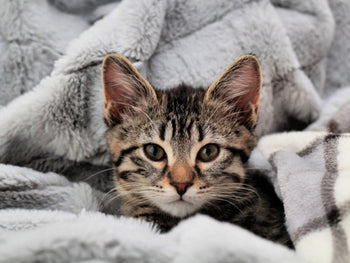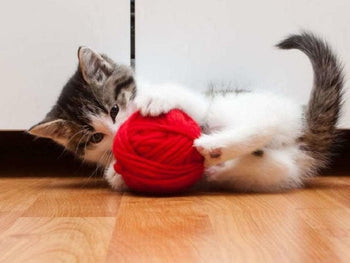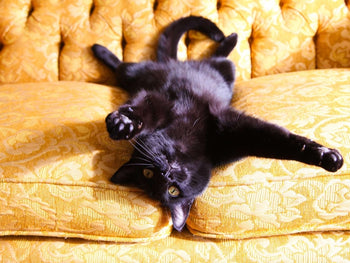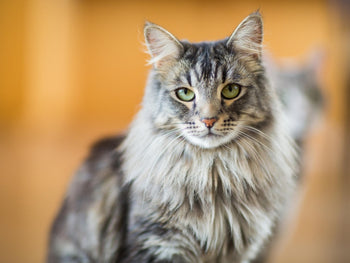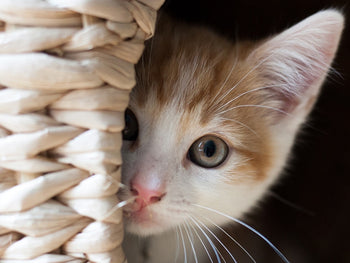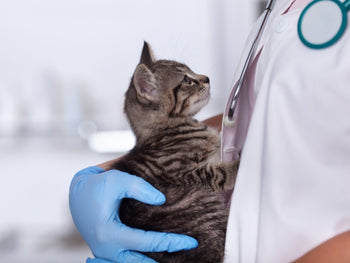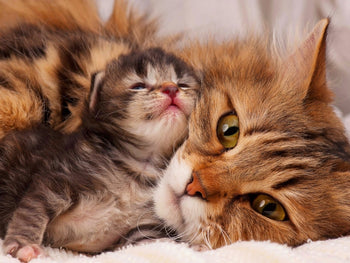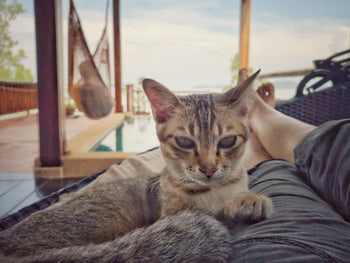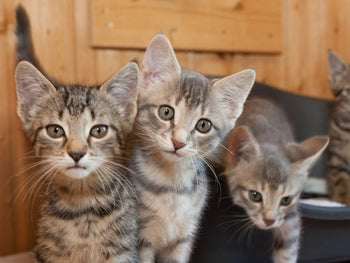
In most of the cases, cat hair loss around eyes (also known as facial alopecia) is no cause for concern. As the felines age, the coat spread out to accommodate the growth of the body which makes the hair become slightly thin in certain regions. So you don't have to worry too much if you notice hair loss near the eyes of your kitty. That being said, facial alopecia could also take place due to a few health issues. Hence, in the case facial alopecia is accompanied by certain symptoms, cat parents must refrain from treating the situation lightly
So you worry that the hair loss of your fluffy friend might mean something serious? If that happens to be the case then you have come to the right place. This article would tell you essentially everything cat parents must keep in mind about facial alopecia from causes to solutions.
The Origin Of Facial Alopecia

Generally speaking, different cats have different constitutions but if it comes to hair loss, it's strongly recommended that pet owners consider the following possibilities.
The average cats run into parasites from time to time and fleas tend to be the most common ones nowadays. As the bloodsuckers bite the skins of the hosts and leave behind trails of saliva, they usually cause intense itching. Needless to say, as the felines attempt to relieve the itchiness, they inadvertently remove lots of hairs in the process. Hair loss caused by fleas could happen pretty much everywhere but the head, especially around the eyes, is the most vulnerable as cats often rub themselves against furniture, scratching posts,...
-
Allergies
Similar to humans, the felines also experience allergic reactions after coming into contact with a couple of allergens in the food, atmosphere and so on. Once that occurs, the pets should feel extreme irritations on the skins which compel them to bite, scratch,... affected regions. Obviously, cats would end up yanking out plenty of their own hair while doing that. On the bright side, everything is going to return to normal in the case cat parents manage to locate and get rid of the allergens.
-
Stress
Cats have a well-deserved reputation for being high-strung: even the slightest "provocations" could send them into a panic. Despite the fact that the felines eventually settle down, some of them might adopt odds habits as they find ways to cope with stressful situations. One of the possible responses is overgrooming: your furball groom itself to the point that its hair begins falling off. To address the hair loss caused by stress, it's of utmost importance to keep affected pets as far away as possible from potential stressors.
While its name sounds like an intestinal parasite, ringworm is actually an itchy fungal infection that feeds on dead cells. Once the infection reaches the hair shafts of the felines, the shaft would break at skin level which tends to lead to unsightly bald patches. Upon inspection, it's possible to see red rings in the patches of hairless skins. Regarding treatments, veterinarians often give cats with ringworm a combination of anti-fungal medications and topical ointments in order to kill spores and suppress infections.
-
Genetics
A couple of feline experts believe that cat hair loss around eyes could be hereditary in a couple of cases. That means instead of underlying issues, cats of certain breeds have bald patches near the eyes because of their genes. Since genetics-induced hair loss causes no irritations to the pets in most cases, it's unnecessary to treat it. Even with modern-day technologies, people remain unable to find ways to encourage the hair to grow back in cats that experience hereditary hair loss. Breeds that might run into hair loss caused by genetics include Birman, Siamese, Devon Rex,...
What Needs To Be Done

Depending on the cause and the severity of hair loss, cat parents could technically address the situation all by themselves. That being said, if you want to be on the safe side while facing the issue of cat hair loss around eyes, have your fluffy friend checked by the vets. After all, compared to ordinary pet owners, trained veterinarians have superior means and skills to detect health troubles in cats. As a result, in the case you feel worried about the bald patches of your kitty, make an appointment at the local veterinary clinic immediately.
Check us out for various astonishing cat tips & facts!
Giving Cats A Healthy Life: Some Suggestions From Feline Experts

Generally, knowing how to react once it comes to cat hair loss around eyes is indeed nice but it's best to keep that from happening in the first place. So check out these preventative measures if you want the coat of your fluffy fried to stay in top shape.
-
Maintain A Proper Sanitary Condition
A clean, well-organized interior not only makes us humans feel comfortable but also allows pets to thrive without trouble. That is why it's essential to clean everything in the house now and then. Periodic cleaning would get rid of many allergens and reduce the risk of parasite infestation. Needless to say, it's definitely wise to temporarily lock your cat in a room so you could clean unobstructed.
-
Always Take Temper Into Account
Some cats don't care much about humans in the house while others go into hiding if they hear footsteps. So if you happen to own a cat, you should think about its temper to avoid making it feel stressed. Vet checks, changes in the interiors, signs of outdoor cats,... these often give cat stressful times which lead to plenty of issues including hair loss.
-
Put Together A Nutritious Diet
Cats that receive sufficient nutrients every day should have a smooth coat and could evade various diseases without much difficulty. Hence, it's widely advised that you plan a balanced daily diet for your furball. Feel free to get into contact with veterinarians if you want a couple of tips and tricks regarding nutrient intakes. In case you don't know, the nutrient requirements of cats often vary greatly between breeds, ages and so on.
Read more Cat's Health Guides and find fun stuff on Cattybox!
